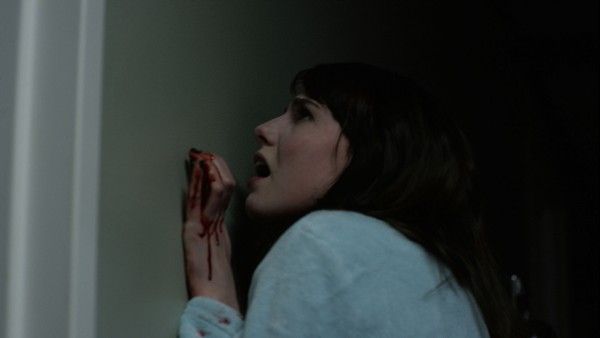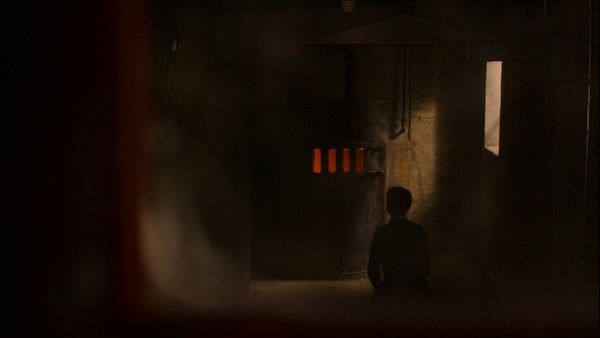Actor-turned-writer/director Osgood Perkins takes an interesting approach to exploring loneliness and loss in his feature directorial debut, February, but an excruciatingly slow pace and ill-timed reveal destroy any chance he’s got of creating an effective and chilling build. Instead, the movie is largely a frustrating bore.
February stars Kiernan Shipka and Lucy Boynton as Kat and Rose. Kat’s an awkward freshman outcast and Rose is a confident upperclassman, but when both of their parents fail to pick them up from boarding school for break without even bothering to call, they’ve got no choice but to stay there together. Rose isn’t thrilled with the dean’s request that she look out for Kat right from the start, but when Kat encounters a demonic entity and starts exhibiting bizarre and disturbing behavior, there isn’t even anything Rose can do to help her.
Shipka and Boynton have absolutely no trouble commanding the screen and giving convincing performances, but they can’t fix the fact that this is a dull, predictable and weakly formatted narrative. Shipka and Boynton deliver every line of dialogue with such conviction you believe it, but then you wait in the silence for what feels like an eternity for a follow-up line or for a response from another character, and it absolutely decimates the pacing. It could have been an effective way to build dread, but when it’s used to excess it becomes tiresome fast.
Perkins runs with a segmented story structure, titling each portion with a character’s name, but the format does absolutely nothing to enhance the experience. In fact, it outright ruins it. While Kat and Rose are stuck at school, a third character, Emma Roberts’ Joan, is hitching a ride nearby from an especially kind and hospitable passerby (James Remar) and his reluctant wife. Just like Shipka and Boynton, Roberts delivers stellar work, but long pauses between lines of dialogue turn the material into an utter drag. Roberts’ reaction shots are powerful enough to make you wonder what Joan is thinking and feel her unease, but, as written, her situation isn’t exciting or engaging enough to hold your attention.
There is a good reason Perkins divides the film into “Rose,” “Joan” and “Kat” segments - the story wouldn't be possible without it - but they're just not pieced together well enough and the format winds up spoiling the twist it’s meant to serve. If you don’t figure out where the story is going mere minutes into the film, you’ll eventually hit a monologue that essentially reveals almost exactly what’s going to happen for the rest of the movie. Perkins has a clear vision and a strong, thoughtful core concept, but it’s packaged so poorly it’s impossible to appreciate the payoff.
A good deal of Perkins’ visual choices further suck the life out of the movie. Characters are often seen in shadows or almost completely silhouetted and there’s an overabundance of dark, grey images. They’re probably meant to create unease and mystery, but they just wind up making the movie feel even more dreary. It’s especially unfortunate because if Perkins trimmed down some of the dead air and reorganized scenes a bit, February could have had one heck of a build. The entity haunting Kat sparks some especially disturbing behavior and leads to a good deal of creepy imagery - Perkins definitely knows how to shoot a bloodbath scene - but the intensity and vibrancy kick in way too late in the game for the big finish to resonate.
February definitely isn’t the haunting slow-burn it could have been, but there are a few memorable takeaways that I hope to get more of in the future - Elvis Perkins’ spot-on score, Shipka, Boynton and Roberts’ strong work, and Shipka’s absolutely outstanding singing voice.
Grade: C
Click here for all of our TIFF 2015 coverage thus far or peruse links to our reviews below:
- 45 Years
- Baskin
- Black Mass
- The Danish Girl
- The Devil's Candy
- Dheepan
- Equals
- Green Room
- Hardcore
- Hitchcock/Truffaut
- I Smile Back
- The Iron Giant: Signature Edition
- Kill Your Friends
- Legend
- The Lobster
- Love
- The Martian
- Sicario
- Trumbo
- Victoria
- Where to Invade Next



